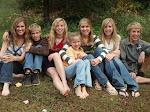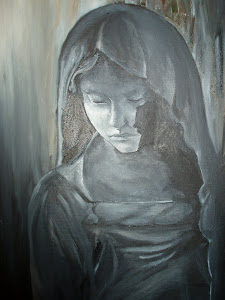Last night, I finally cracked open a set of little books I bought last year at a garage sale called The Pocket University. In volume twenty-three called The Guide to Reading there is a section called Books for Reading and Study by Lyman Abbott. Whenever I read a really good book, I simply MUST have a pen in my hand. Especially good passages scream at me to underline them. I absolutely hate it when the book is some special edition that I can not write in because then I must drag my journal out and recopy the special passages into it. If it is a really good book my hand usually wears out before I can get very far. Luckily this was one set I had decided to allow myself the privilege and joy of underlining in.
-
Here's the first part I underlined:
-
" In every home there ought to be books that are friends. In every day, at least in every week, there ought to be some time which can be spent in cultivating that friendship. This is reading, and reading is very different from study."
-
And then this:
"You do not need to decide beforehand what friend you will invite to spend the evening with you. When supper is over and you sit down by the evening lamp for your hours of companionship, you give your invitation according to your inclination at the time. And if you have made a mistake, and the friend you have invited is not the one you want to talk to, you can 'shut him up' and not hurt his feelings. Remarkable is the friend who speaks only when you want to listen and can keep silence when you want silence."
-
This article was packed with screaming sections and I was happily underlining when I came to this:
-
"If the reader is wise he talks to his friend as well as listens to him and adds in pencil notes, in the margin or on the back pages of the book, his own reflections. I take up these books marked with the indications of my conversation with my friend and in these penciled memoranda find an added value. Sometimes the mark emphasizes and agreement between my friend and me, sometimes it emphasizes a disagreement, and sometimes it indicates the progress in thought I have made since last we met. A wisely marked book is sometimes doubled in value by the marking."
-
This reminded me of this article, How to Mark A Book by Mortimer J. Adler, the same author of How to Read A Book, which is part of our home school curriculum. For some reason, it just felt good to get "professional" permission to mark my books. And not just permission but praise and encouragement for doing so.
-
I think better on paper. When I am planning one of the children's school years, I use reams of paper. Writing and scribbling until I get everything just the way I want it. I know it would be much more efficient if I would use the word processor but I prefer sitting on my bed with the old fashioned pen and a stack of real paper. I learn quite a bit about the time period they will study just by making so many notes and chronological outlines. I know it's not necessary but it helps me to feel like I have a handle on their course of study.
-
Recently, I think I have finally hit upon a system of journal keeping that will work for me. I used to have several journals. One for quotes, one for diary entries, one for books read and thoughts about them, one for Bible studies and church notes. It was always a pain to track down the exact one I needed. Recently, I decided to use one journal for everything. All of my thoughts, notes, prayers etc. will be in chronological order. An added benefit to this system is I get the pleasure of buying a new journal more frequently, which is almost more fun than the actual journaling!
-
Well, I'm off for my "hours of companionship". Tootles!





No comments:
Post a Comment